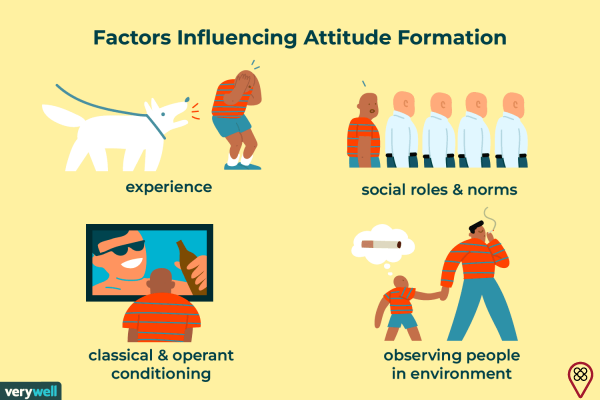
What would be a good example to define changes in attitudes? Swāmi Dayānanda, a wise master, surprises him with this story: a young man who is going to marry a girl.
On the eve of the wedding, the bride asks to speak with the groom. She then tells him that she is adopted, so the parents she introduced to her are not biological and that, moreover, she was found by this family when she was still very young, lost in a big religious festival. The family looked for the little girl's parents, however, as they couldn't find them, they ended up adopting and raising her with all the love. She was then named Ganga, after the river on whose bank she was found.
As he listens to this story, the boy remembers his younger sister, who had been lost from her family, exactly 24 years ago, at the same religious festival that his fiancée had mentioned. At this moment he realizes what was really happening and runs to his mother to ask her if, by any chance, his fiancée might not be his long-lost sister. To answer this question, the groom's mother looks at the girl's birthmarks, recognizing her as her own daughter, Mina.
When he learns of this fact, the groom completely changes his attitude. He no longer sees her as a woman, nor as a bride, much less as a wife. He just sees her as a sister. This change process was instantaneous. In a moment he was willing to give her his heart, as a lover and husband. In the other, he just has her with a brotherly love. This fact makes him have a relevant change of attitude, and it was not gradual, it did not happen gradually, it was radical and instantaneous! Born from the recognition of the situation he was living.
Changing your attitude is part of a natural consequence of the knowledge you receive. As in the story quoted by the master, there are changes in attitudes towards other things. But all these attitudes derive from the same source: a deep knowledge of what surrounds you.
Any change in attitude is based on fundamental themes, however, many people do not understand this. Without understanding these issues any attempt at change will be limited, foolish and incomplete. If we go back to the example, we will see that the boy doesn't need anyone to tell him that he needs to treat his fiancée as if she were his own sister. He already knows she is, and therefore knows how to treat her.
Our ability to transform attitudes is related to several things, such as transforming attachment into detachment, suffering into contentment, emotional oscillation into balance, sadness into joy, among other examples, and all this is related to the fruit of self-knowledge and, consequently, to a spontaneous attitude change.
As with recognizing the limitation of desires, that is, realizing that desires will not make you happy, and that they don't even have the capacity to do so, you can simply let go of the attachment that I have for them, causing them to lose their hold on you. , instantly.
When I know who I am, when I can see myself as the simple, quiet person that I am, I can recognize that nothing can be added to or taken away from me and so, attachment and suffering are gone.
that's the release: the ultimate goal of all Yoga!
Namaste!

























